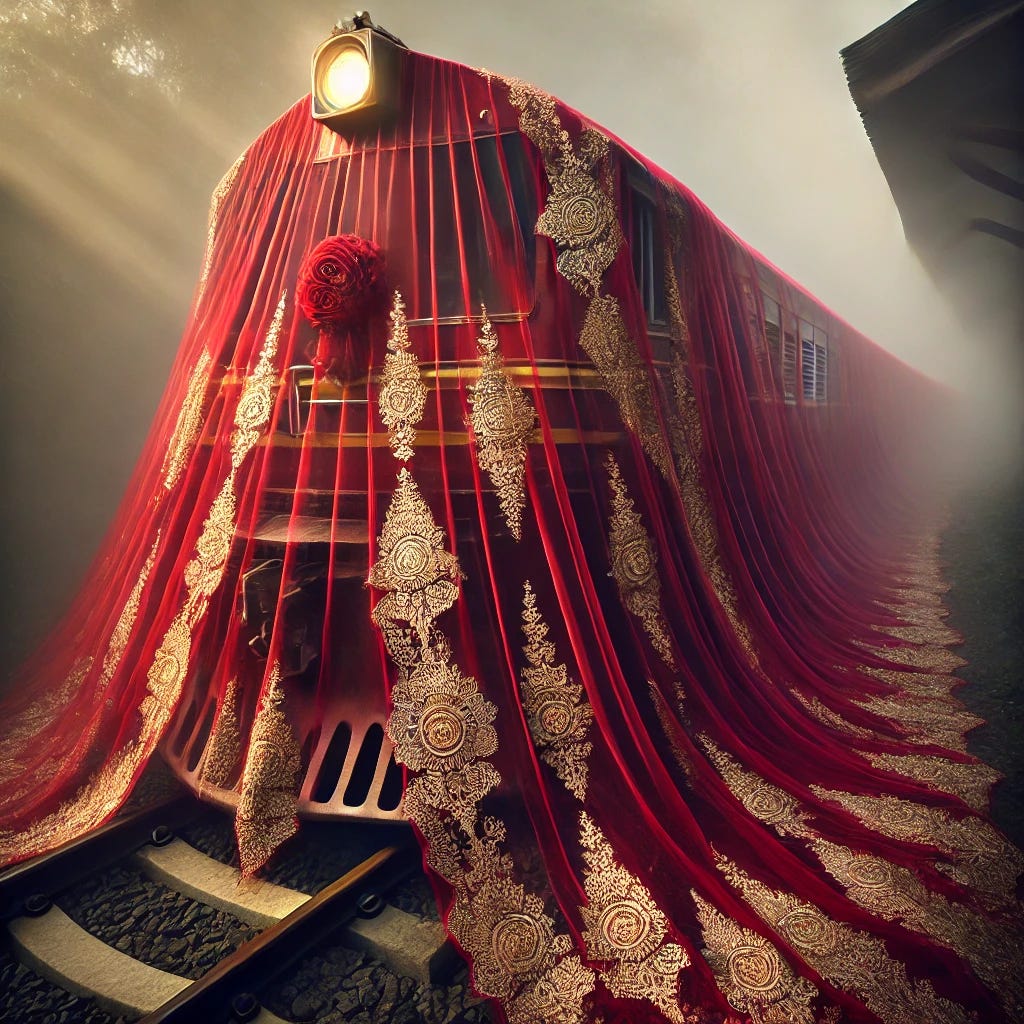uncovering the missing details
trains, veils and unintended consequences - thoughts on why funny isn't always funny.
While I’m lingering on the topic of Later a little longer, here’s a mulled thought offering, arriving in the middle of my fourth fast for Ramadan this year.
This is one of many things I’ve wanted to write about but left for later. Some of my other thoughts have faded and now that so much t——i——m——e has passed I’ve forgotten them and/or replaced them with newer Laters. May they be at peace and always know they were truly loved by me.
Instead of burying this one, here it is, after having lived in my head for many many months.
I saw some buzz about Laapataa Ladies on the internet a while ago and thought,yes! this looks great,let me add it to my “movies I want to watch later” list.
Right on cue, a few months later, I finally sat down to watch it with a giant bowl of airy, over-salted popcorn glistening with butter.

At first, it was all going well — funny, light, fresh, and interesting. Cute scenes, and a very important train ride that reminded me of the time when my parents and I traveled from Bombay to Surat on our way to visit my ancestral village. I do love a good train ride so at this point I was completely on track with where the film would take me.
The film’s inciting moment happens on this train, where the newlywed brides sit with their faces veiled as is the practice of long-standing cultural and customary traditions for some communities. From here, a mishap sets the entire story into motion.
I’m not here to do a full synopsis, what I mostly want to say is this: if one of the film’s underlying messages is that veiling one’s face is incompatible with modern feminism, then how is it that for both of these women, the veil itself is what enables the journeys that ultimately lead them to something better? It seems to me that it is the very thing that saves one of them from an awful husband and the other from the naivety of servitude.
And another thing: the scene with the Muslim woman in niqab feels like a subtle Islamophobic nod — framing it as a symbol of identity loss, especially in the way she enters the scene from behind her husband. It’s an unnecessary and unfortunate addition, one that deserved far more nuance and care. Personally, I think the film would have been better off without it.
If it isn’t clear yet, I don’t like my Islamophobia veiled.
If you can overlook these two things, you’re a luckier fish than me.
The popcorn was good, though.
P.S. All we Imagine as Light is next on my list!


Farzana, I love your observations and welcome them.
That train dressed as a bride is 💛💜 too much fun!
The veiled train is stunning!
As for the niqabi Muslim woman - here's my take - I think because the movie was made on 'ghoonghat' and it's implications for women, the director may have feared a backlash from those who would brand it as anti-Hindu. In my opinion, this was done just to cover their bases and make it look like, "See! We're calling out all communities and their practices without singling out one." It felt forced. But, as an Indian and given the circumstances we're living in now, I understand that fear. Ironically, as an Indian Muslim, I couldn't have made this observation public had it not been for your essay!